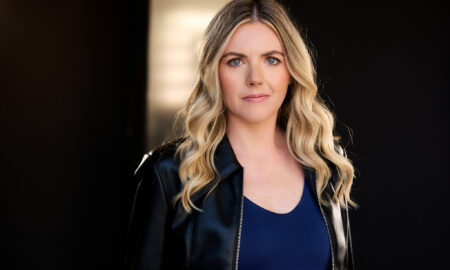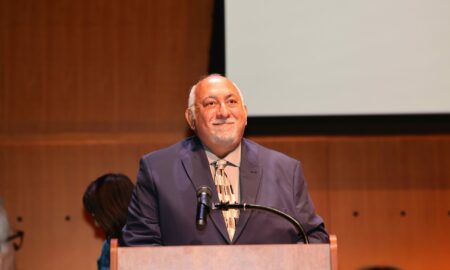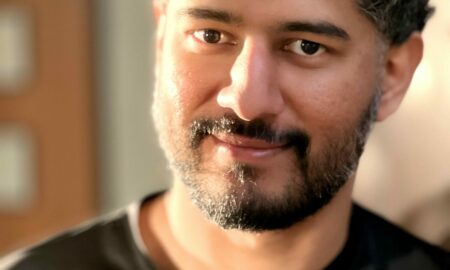
Today we’d like to introduce you to Gretchen Kubacky, Psy.D.
Gretchen, please share your story with us. How did you get to where you are today?
As I went back to graduate school and switched careers in my late thirties, I was also going through a number of personal and family health challenges. My stepfather was dying of cancer, and I was having multiple surgeries to deal with complications of Polycystic Ovary Syndrome (PCOS).
I developed an interest in working with people’s health challenges and related grief issues and became a health psychologist. Just as I was getting licensed, I also was experiencing infertility, which affects about 75% of women with PCOS. It wasn’t a surprise, but what was a shock was how painful the experience was emotionally. By that time, I considered myself a professional patient, so the medical procedures themselves were less challenging than the lack of support and understanding exhibited by the medical practitioners. I had excellent doctors but felt a lot of stress, pressure, fear, and anxiety.
Even with my experience of dozens of surgeries and medical procedures, as well as thousands of hours of professional experience, I was still overwhelmed. I assumed that other women were at least as overwhelmed. I developed a specialty in treating women with infertility and naturally had many PCOS patients show up in my office. I realized that PCOS was a far greater problem than just infertility. PCOS causes early onset Type 2 diabetes, almost intractable obesity, facial hair growth, skin problems, cardiovascular disease, depression, anxiety, eating disorders, mood swings and a host of other demoralizing symptoms that destroy hope, femininity, and motivation.
PCOS affects approximately one in five women, and half of them don’t even know they have it. I couldn’t find an established protocol to treat the psychological symptoms, so I researched and developed my own way of approaching the problems. My goal is to empower patients to find their own solutions, create supportive medical teams, and address their mood swings, irritability, sleep, and weight issues through a holistic and integrative blend of techniques.
I drew on what I had learned as a child and young adult. My family was a little unusual in the way we ate mostly homemade whole foods, and we were all trained in Transcendental Meditation when I was ten.
I read all of my father’s alternative health books, and all of my mother’s psychology texts for fun as a child, everything from Adele Davis to the Whole Earth Catalog. I started shopping at health food stores with my mom and cooking and baking when I was very young. In my teens and early twenties, I studied yoga, eastern health philosophies, and massage therapy. I’ve drawn from this background to create my own PCOS-specific treatment approach that focuses on sleep, meditation, yoga, nutrition, stress reduction, supplements, and occasionally prescription medication.
I became an advocate for women with PCOS, and a Certified PCOS Educator. I am a frequent speaker on women’s health topics. I also founded PCOSwellness.com to bring affordable education and inspiration women around the world who are dealing with PCOS. I recently published a book, “The PCOS Mood Cure: Your Guide to Ending the Emotional Roller Coaster,” that crystallizes my treatment philosophy.
Has it been a smooth road?
The progression from PCOS patient to PCOS psychologist, author, educator, and advocate has not been clear, easy, or simple. Aside from the years of graduate school, internships, and the tests required to become licensed, I’ve created a private practice and started a health coaching business. I got licensed just a few months before the 2008 recession, which put a crimp in my small practice. I’ve been waylaid dozens of times by painful burst cysts, emergency hospitalizations, surgeries, and the fatigue of dealing with multiple chronic illnesses.
My quest for healing has led to dozens of doctors and diets, hundreds of supplements, good medical treatments, horrible medical treatments, and a lot of time in my own therapy. I never recommend anything to my clients or patients that I haven’t tried on myself and for better or worse, I’ve tried almost everything. I’ve also spent countless hours on research and simply educating people about what PCOS is, how deeply it affects women’s health, and why it needs to be treated as a public health priority.
PCOS research is very poorly funded, and often overly focused on fertility. Broaching and broadening the subject continues to be a challenge, even as I’ve become a recognized expert in the field. I struggled to write a book that would be helpful and easy to understand, and sometimes I feel like I’m speaking into the void, but I know what I’m doing is critical for women’s health, so I keep pushing to be heard.
So let’s switch gears a bit and go into the PCOS Wellness story. Tell us more about the business.
I founded PCOS Wellness in July 2015 to address the need for an accessible source of information on the psychological, emotional, and mental health issues, stressors, causes, and treatment approaches for women with Polycystic Ovary Syndrome (PCOS), the most common endocrine disorder affecting women and girls. While I have a private practice offering psychotherapy focused on health issues in West Los Angeles, I am often asked to provide short-term, problem-solving help for the newly diagnosed, when symptoms flare, or there’s one or more additional diagnoses or health crises or concerns.
PCOS Wellness gives me a way to provide evidence-based medical and psychological information along with my personal approach to wellness, motivation, inspiration, and a healthy dose of humor – because if you’re not laughing about this regularly, it’s an even more difficult journey. PCOS is a lifetime condition, and there is no cure. There’s only effective management, but that is difficult to figure out, the experts are in some conflict, and there are lots of rumors, guessing, and misinformed treatment recommendations. I also host a free private Facebook group called PCOS Psychology, which serves as a forum for peer support.
I moderate it personally and am there everyday answering questions. I want PCOS patients who are struggling with mood swings, depression, anxiety, fear, irritability, sleep problems, eating disorders and more to have a safe space to share their experiences and seek answers. Reading my book, “The PCOS Mood Cure: Your Guide to Ending the Emotional Roller Coaster” is another important part of getting a good grounding in PCOS and understanding how hormones affect mood. Beyond that, I offer speaking, writing, professional consultation and training.
How do you think the industry will change over the next decade?
2018 was a pivotal year for PCOS. I feel like we’ve finally reached critical mass in terms of having a few popular books on the topic, attention from politicians with a resolution in the works to declare it a national health priority, and an active and growing national charity (PCOSchallenge.com) that has good visibility and outspoken advocates. I serve on the PCOS Challenge Health Advisory Board and assist them in addressing the need for PCOS-specific psychological education and materials. For health psychology in general, the future is broad and bright.
The population is aging, people are more aware of the mind/body interaction, the role of the gut/microbiome in mental health, nutrition for mental health, and how lack of sleep affects mood and functioning. We have an interest in integrative, holistic, and natural approaches to medicine that incorporate the best of allopathic medicine, traditional Chinese medicine, Native American healing practices, and Ayurveda, as well as a culturally diverse population in Los Angeles that demands integration and answers.
Medical institutions are beginning to retool in the model of comprehensive “medical homes,” where you have one-stop shopping and more of a whole body approach to medical. I see all of these trends and themes as positive. While our medical and mental health care systems are challenged and in many ways outdated, change is also happening rapidly. I am really hopeful about the evolving nature of healthcare.
Pricing:
- $20.99 “The PCOS Mood Cure: Your Guide to Ending the Emotional Roller Coaster”
- $350/hour psychotherapy, coaching, and consultation
- $1,500 local speaking engagements
Contact Info:
- Address: 2001 South Barrington Avenue, Suite 121 Los Angeles, CA 90025
- Website: www.PCOSwellness.com and www.DrGretchenKubacky.com
- Phone: (310) 625-6083
- Email: [email protected]
- Instagram: https://www.instagram.com/pcoswellness/
- Facebook: https://www.facebook.com/WellnessPCOS/
- Twitter: https://twitter.com/askdrgretchen?lang=en
- Other: https://www.linkedin.com/in/gretchen-kubacky-psy-d-2107366/







Image Credit:
Cathryn Farnsworth, Credit Brandon Papo for one holding book (IgIMKKpf)
4pDVZyGc, 8meu6Iu0, bYEWzPcB – these are photo credit jurbanphotos (Jeff Urban)




















